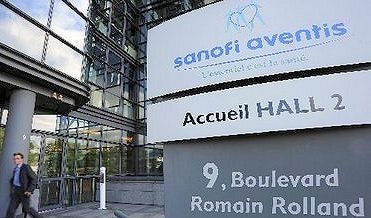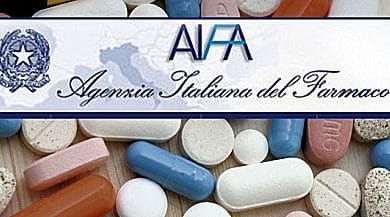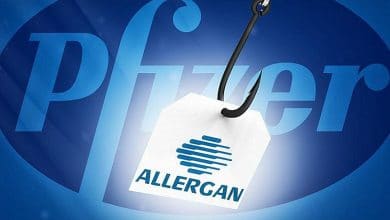
It thus becomes even more urgent to start thinking about concrete forms of direct collaboration/cooperation between hospitals/IRCCS/pharmaceutical industries for the next few years. The comparison table for the resolution is underway
Of Antonio Marfella | 16 July 2014 | The Fact Economy & Lobby
The very serious situation of shortage of drugs in Italy, contemporary with the exceptional increase in the costs of innovative molecules, especially in Oncology, is an apparently complicated and paradoxical situation, if we do not want to see how the world economy today is based on the pharmaceutical market, first economic sector, especially illegal. A solution must be found and quickly, with the hope that viable proposals will come out as soon as possible from a job that involves the entire supply chain (territory, hospitals, Irccs).
Together with the institutions, it is necessary to find a right path, also on the regulatory front, which allows for having the right amount of medicines for the national requirement. There is a law that allows parallel exports, which is difficult to cancel due to the basic principles of the European Union on the free movement of goods and people, but which does not reconcile very well with the public service requirements which require pharmacies to supply medicines to who asks for them. Surely a starting point could be the "tracing" of drugs, which already exists but whose data is not available in all parts of the supply chain. This would allow us to understand where the drugs come from. But it is not enough to intervene on the consequences, we must act on the causes.
The most realistic estimates for the current year (2014) predict a further increase in drug expenditure in the Oncology Units of between 10 and 20%. The situation is varied, both between Regions and between Companies in the same Regions. Can we balance our ethical duties as professionals towards the patient we are dealing with with the responsibilities that society entrusts to us as managers of the Health Service? As doctors employed by the NHS it is our priority duty to take care of our Health Service, and its economic/financial balance, without which any reasoning about the individual patient would vanish.
In Italy, some things could be done, for example, immediately, as suggested by Cipomo (Italian College of Primary Oncologists and Hospital Doctors). Between these:
1) Require that the incremental cost-effectiveness ratio (ICER) of each new molecule approved is known
2) Establish that Italy cannot afford to pay for treatments that have an Icer higher than a certain amount (between 50 and 100,000 euros?) per year of life gained, weighted by quality (by the way: how many of the new drugs would support this approach ?) but also, as the writer suggests:
3) Think of a direct partnership between NHS companies and pharmaceutical companies, including private and/or state-owned companies, for the direct production, with guaranteed consumption and "short supply chain", of generic, bioequivalent and biosimilar drugs with greater and consolidated therapeutic efficacy.
In this way we would not limit ourselves to maximizing the benefits that patients obtain for the money spent, but this would offer doctors and patient advocates essential elements to help them concretely maintain the level of economic resources they need to defend those budgets so seriously threatened.
In relation to territorial pharmaceutical expenditure, it is decreasing, but thefts in hospital pharmacies and the diversion of Italian medicines towards the international market are clearly increasing. In many OECD countries, including Italy, a reduction in territorial pharmaceutical expenditure has contributed to the overall reduction in health expenditure. In Italy, although per capita values in dollars remain higher than the OECD average (514 US$, against an average of 498 US$), pharmaceutical expenditure has decreased every year since 2009, with a reduction of more than 6% in real terms in 2012. Between 2008 and 2012, drug spending fell by 14% in real terms. The market share of generic drugs in Italy has increased in recent years (from 6% in 2008 to 9% in 2012), but remains much lower than those observed in other OECD countries.
Conversely, in the last year alone and above all in Campania and Puglia, we have recorded an exceptional increase in robberies at hospital pharmacies which took us all by surprise: as many as 53 in 2013! More robberies in pharmacies than even in banks, given an average yield of a robbery in a hospital pharmacy of 330 thousand euros, without the risks of a bank robbery! As always, the underworld shows us the main road to economic development, but we are only looking at the criminal aspect, not at the precious entrepreneurial intuition of the criminals.
Thus we begin to register a very dangerous principle of lack of oncological drugs on the domestic market, especially the most effective and low-cost ones because they are off-patent, due to fraudulent and/or explicitly illegal behavior, on the domestic and international pharmaceutical market, by wholesalers and distribution international. If we learn to look at the moon pointed by the rapacious fingers of criminals, without limiting ourselves to just trying to stop the finger, it thus becomes even more urgent to start thinking about concrete forms of direct collaboration/cooperation between hospitals/IRCCs/industries over the next few years pharmaceuticals. Not only in terms of researching innovative and/or patentable drugs, but above all in the field of generic, bioequivalent and biosimilar drugs, with the aim of starting to plan synergistic and operational actions also in the direct production of drugs (off patent) for our patients: drugs which are therefore no longer just costs, but instead become precious economic resources for our Healthcare Companies.
How to consider the drug: just a cost or can it also become a resource for the public NHS? (As it has always been for the underworld?) At a national level, monothematic IRCCS like ours, in Oncology, will have to become, in a period of time that seems to be getting shorter and shorter, a reference point for research not only on technological innovation, but above all in the evaluation of systems (development of Health Technology Assessment), within which the direct production of generic, bioequivalent and biosimilar drugs, through the establishment of study/work/direct production groups University-IRCCS-Industry "short supply chain" on the "from producer to consumer" model represents, in the opinion of the writer, the most effective guarantee of maintenance and protection of a National Public Health System such as ours.
The resulting advantage is not only economic and managerial, but by becoming a direct partner in the production and dissemination of drugs that are no longer covered by patents, you also become a voice in defining the requests for use, indications and dosage. The time has come for the therapeutic indications and the consequent authorization requests to the Italian State to come from the direct indications of the Researchers, given that their (Public!) Companies will become part of the Boards of the manufacturing companies.
We will thus be able to avoid other serious "distractions", to the detriment of the Italian State, such as those unfortunately recorded and brought to the attention of the Judiciary in the Avastin - Lucentis case.
Drug shortages: the discussion table for resolution is underway
by Slow Cyrus July 16, 2014 – Those who the pharmacy Magazine
The news of the lack of interest from the EU Commission regarding the issue of shortage drugs seems to have pushed the drug supply chain Italian to try to resolve the problem autonomously, all with a discussion table where the main issues can be discussed, a meeting that would involve the main categories and associations among which there is no shortage Fedefarma, followed by Assofarm, Fofi, Adf, Fedefarma Services, Assogenerics, Farm industry and Assoram in a dialogue that hopes to be able to reach important conclusions.
The president of Fedefarma, Annarosa Racca, who clarified: “The negotiating table must develop proposals as soon as possible and on this basis, together with the institutions, find the right path, also on the regulatory front, which allows for the right amount of drugs for national needs: we cannot afford a system that checks for deficiencies because i drugs are exported. The delegate group is already working in forced stages with a first meeting scheduled for next week. I am confident and I believe that if the whole chain really works together, from the industry to the intermediate distribution up to the final one, we will find a solution“. Among the problems that currently constrain direct interventions on the shortage drugs stands out the parallel trade, a maneuver legally granted albeit incorrect, and the lack of a reimbursement price for the drugs unity in Europe: in the first case, it is the EU itself that blocks any maneuver with the principle of free trade, which would collide with any targeted intervention, in the second case, however, the internal policies of the various countries change, together with the interests, on the basis to the import/export of drugs, with Italy being the country with the lowest drug price.
Among the first solutions to curb the shortage drugs, not being able to openly intervene on the pillars of the problem, there could be tracking of drugs, a method capable of being able to monitor movements by better understanding the processes underlying the unavailability phenomenon, in addition to the new reporting obligation procedures, for wholesalers who do not fulfill guaranteed supplies, as established in the recent Anti-counterfeiting decree, to remedy a problem whose reports are growing but on which much more needs to be done.
– See more at: http://quellichelafarmacia.com/18508/carenze-farmaci-via-tavolo-confronto-per-risoluzione/#.U8amwfl_t8E
TO





